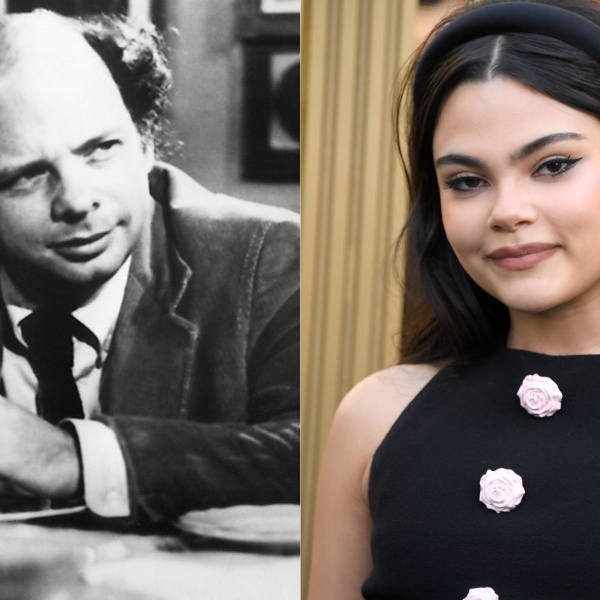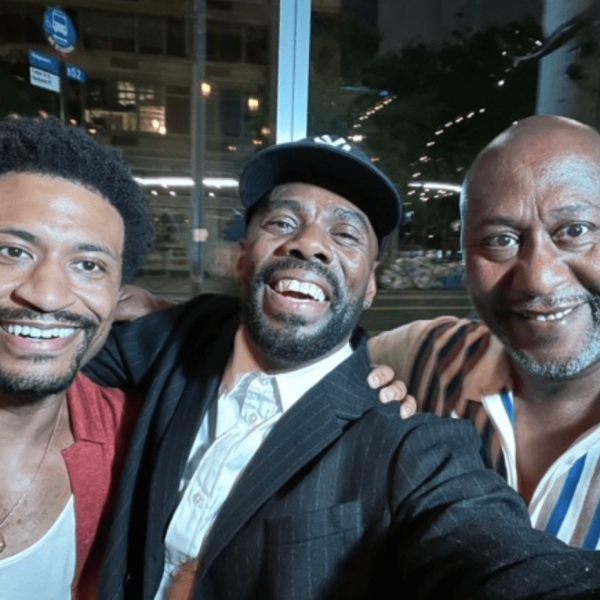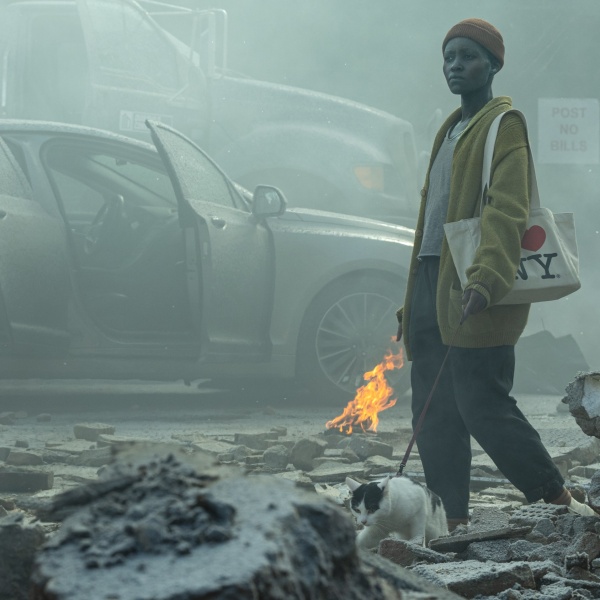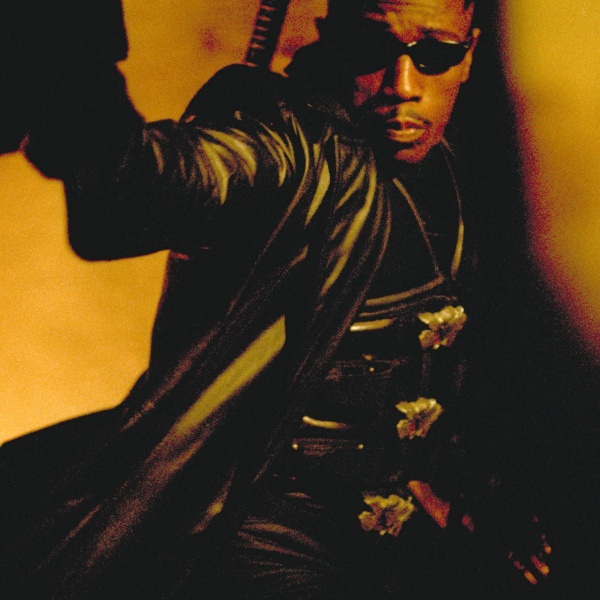
One of the innumerable tragedies that have resulted from the decades-long strife in the Democratic Republic of Congo is the suffocation of any kind of national cinema. For most of this century, the nation’s capital, Kinshasa, has not even had a film theater; due to chronic funding difficulties and the instability that plagues much of the country, the handful of non-documentary features about Congo that emerge are largely financed by foreign players.
“Omen,” the feature debut by hip-hopper-turned-filmmaker Baloji, is a Belgian, Dutch, and Congolese co-production, and even as it offers a deeply felt look at Congolese customs, sensibilities, and family dynamics, it foregrounds its own European perspective. What results is an intriguingly ambivalent reckoning with Baloji’s mother country, a genre-hopping, beautifully slippery exploration of Congolese belief systems and their relation to patriarchally inflicted traumas.
Baloji tackles his material with both clarity and complexity: the film is split into four chapters, each named after its respective protagonist but also intersecting narratively with the other three. In the first segment, Koffi (Marc Zinga) — like the director, a Congolese Belgian born in Lubumbashi — is nervous about returning to his birthplace for the first time in 18 years, to introduce his family to his pregnant white fiancée, Alice (Lucie Debay). Already the omens aren’t good: his mother Mujila has implied, via phone call, that he won’t be welcome in the house; shortly after, he collapses in the corridor and has an epileptic fit. And when the couple finally make it to Congo, Koffi’s sister Tshala, who was going to give them a lift from the airport, is nowhere to be seen.
Once Koffi and Alice do reach the family home, they’re met with a predictably frosty welcome, which, instead of thawing, soon explodes into hysteria when Koffi, gently cradling the baby of one of his other sisters, has a nosebleed. Unintentionally loosing a couple of scarlet drops onto the infant’s cheek, he finds the baby wrested from him; Alice is shoved away, and accusations of devilry are hurled.
Though the scene recalls the black humor of the culture clash in the early stretch of “Get Out” (2017), and the following sequence — in which Koffi endures a ritual purging while a disturbed Alice watches on — echoes that film’s horror elements, the overriding impression here is one of ineffable sadness.
Subsequent chapters deepen this chagrin. The one devoted to Tshala (Eliane Umuhire) explores her relationship with her philandering boyfriend Ezra (Bongewize Mabandla); Umuhire, the Rwandan actor who made such a vivid impression in the 2021 afrofuturist musical “Neptune Frost,” endows Tshala with a generous vivacity and a proud modernity that make it all the more surprising when she desperately resorts to witchcraft to dispel an STD she’s contracted from Ezra. The final chapter, concerning Mujila (Yves-Marina Gnahoua), is one of revelations, excavating the sorrow — born of emotional suppression and the lack of bodily agency she had as a young woman — that underpins her own superstitious belief system.

Lest this all sound overwhelmingly melancholic, there’s no shortage of humor throughout, and narrative dynamism abounds: the film’s second chapter, titled “Paco,” introduces a teenage antibiotics dealer (played by Marcel Otete Kabeya) who has nothing to do with the family. The leader of a pink tutu-wearing gang called the Goonz, who are embroiled in a turf war with a vicious rival group, Paco is struggling to get over the death of his young sister Maya; his relationship with the spirit realm is the most explicitly realized, particularly in a startling sequence involving a forest-dwelling witch and a slow-motion potion explosion.
In the course of the film’s parade of visual riches, there are tantalizing hints at broader, troubling themes. On a bus ride, Koffi speaks to an old miner who points out, in a manner both bemused and quietly concerned, a man walking by outside clad in leopard print; later, a similarly clothed entrepreneur offers a Wi-Fi hotspot under a tree. These explicit invocations of Mobutu Sese Seko — president of Congo from 1965 to 1997, often identified with leopard-skin clothing — suggest a populace hankering, in a strangely kitschy fashion, for a dark past; it speaks to a cultural and political amnesia (one that is certainly not restricted to the DRC). Much of the murderous dictator’s policy platform of “authenticité” — a large-scale attempt to rid the country of the trappings of colonialism, and reclaim indigenous Congolese (or Zairean) customs — barely survived his reign, but that particular populist ideology is refracted through many of “Omen”’s characters’ steadfast belief in witchcraft.
While it would have been gratifying to see such topics explored in more depth, Baloji’s approach to Congolese history is deliberately allusive; his style is more intuitive than analytical. This sometimes throws up character elements that are abandoned as swiftly as they’re introduced: both Koffi and Paco are prone to epileptic convulsions, suggesting a metaphysical bond between them — but nothing more is made of this.
A generous viewer might see Baloji’s disinclination to follow up or build on these connections simply as a sign of sheer confidence in his material: it’s up to the viewer to construct meanings and correlations. In any case, it should not be mistaken for a lack of profundity. The director’s gift for unpacking the way notions of witchcraft can function as fig leaves for trauma, combined with his obvious eye for costumes, lighting, and framing, make for a visually striking, deeply compassionate, and memorable debut.
Fans of Congolese popular music, meanwhile, will appreciate the final song: “Kinsiona,” written by national legend (and “sorcerer of the guitar”) Franco Luambo, covered here by Malage de Lugendo, who possessed one of the silkiest tenors of the 1980s (and who lends his first name to one of the film’s characters). The song is Franco’s lament for his younger brother, dead at 26 in a car crash; it’s a subtle echo of Paco’s fraternal heartbreak, and a final reminder, if one were needed, of Baloji’s sensitive attention to detail.
Grade: B+
“Omen” premiered at the 2023 Cannes Film Festival. It is currently seeking U.S. distribution.







